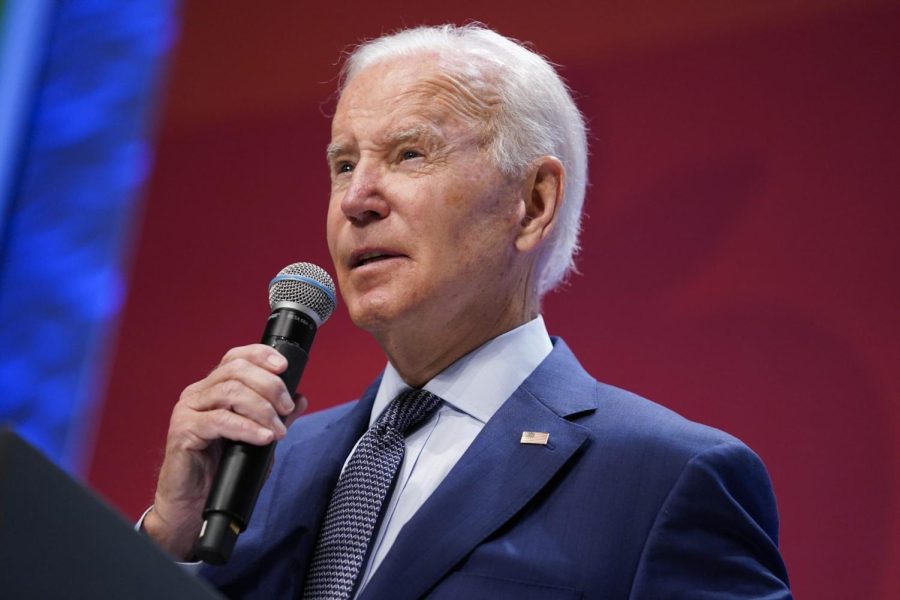America entered a nationwide quarantine to stop the spread of COVID-19 on March 15, 2020. Over the past two years, the trajectory of this country changed drastically, involving health concerns and citizen safety as a whole.
From the start, there was controversy surrounding pandemic regulations of whether or not masks were necessary. Many people not only contracted this virus, but died from it as well.
On Sept. 18, President Joe Biden announced the end of the pandemic in his interview in 60 Minutes. After this was televised, people took to social media to voice their concerns regarding his statement.
It is harmful on President Biden’s part to say that this issue is in its’ latter stages, because that is just not true.
This long winded viral outbreak has left nurses, doctors, and patients utterly exhausted and defeated. While the number of positive cases continues to fluctuate, people are taking less precautions to avoid contracting the virus.
“COVID is here to stay,” Guncha Aurora, the owner of Skinottam Dermatology and Cosmetology in Ghaziabad, India said. “Like the influenza viruses, COVID will also have changing viral behavior and will require regular vaccination.”
The White House even came out with a statement in August stating that they will no longer be giving out free COVID-19 tests to Americans. This is certainly a concerning issue, because while there is a vaccine to combat the virus, citizens will not have access to testing again in the near future.
There is much confusion surrounding the actual status of the coronavirus and its multiple variants.
“It is a common misconception to think the newer variants are more mild,” Tiffany Najberg, medical director of UrgentEMS in Shreveport, Louisiana said. “[They] are easier to catch and spread much faster.”
This is not the best way to look at this virus, because it is not as simple as getting the stomach bug throughout your life. COVID in its entirety severely impacted people even after they were out of quarantine. Many, like myself, are suffering from long-term COVID symptoms.
Unfortunately, the vaccines cannot protect us from every single variant circulating the country. I, along with others, feel the need to move forward, but that does not mean we will forget about the effects of the pandemic entirely. What we should be doing is keeping testing sights open and have access to boosters each year which have the antibodies to fight off newer variants. As long as we continue the fight, this can become manageable.
The way organizations such as the Center For Disease Control and Prevention are beginning to put their guard down is resulting in a false sense of security amongst citizens who are assuming this virus isn’t as serious anymore. By putting their walls down and holding off on the resources that people need to survive this illness, they are letting us down.
“Outbreaks, depending on severity, may merit some government reactions, but these actions would be limited to specific and well-defined regions or populations,” Anirudh Lochan, a pulmonologist at Jeevan Jyoti Hospital and Clinic in New Delhi, India said.
According to Lochan, the world will be able to move on from the pandemic when it is no longer a global health concern.
The stress that comes from this virus can be reduced if we are properly equipped to deal with it long-term. This is not to say we should completely move on and forget about it as a whole. If we do not keep this in the back of our mind, COVID will still have power over Americans and others around the world.


